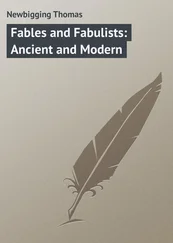Charles Bradlaugh - Ancient and Modern Celebrated Freethinkers
Здесь есть возможность читать онлайн «Charles Bradlaugh - Ancient and Modern Celebrated Freethinkers» — ознакомительный отрывок электронной книги совершенно бесплатно, а после прочтения отрывка купить полную версию. В некоторых случаях можно слушать аудио, скачать через торрент в формате fb2 и присутствует краткое содержание. ISBN: , Жанр: foreign_language, foreign_prose, на английском языке. Описание произведения, (предисловие) а так же отзывы посетителей доступны на портале библиотеки ЛибКат.
- Название:Ancient and Modern Celebrated Freethinkers
- Автор:
- Жанр:
- Год:неизвестен
- ISBN:http://www.gutenberg.org/ebooks/30200
- Рейтинг книги:5 / 5. Голосов: 1
-
Избранное:Добавить в избранное
- Отзывы:
-
Ваша оценка:
- 100
- 1
- 2
- 3
- 4
- 5
Ancient and Modern Celebrated Freethinkers: краткое содержание, описание и аннотация
Предлагаем к чтению аннотацию, описание, краткое содержание или предисловие (зависит от того, что написал сам автор книги «Ancient and Modern Celebrated Freethinkers»). Если вы не нашли необходимую информацию о книге — напишите в комментариях, мы постараемся отыскать её.
Ancient and Modern Celebrated Freethinkers — читать онлайн ознакомительный отрывок
Ниже представлен текст книги, разбитый по страницам. Система сохранения места последней прочитанной страницы, позволяет с удобством читать онлайн бесплатно книгу «Ancient and Modern Celebrated Freethinkers», без необходимости каждый раз заново искать на чём Вы остановились. Поставьте закладку, и сможете в любой момент перейти на страницу, на которой закончили чтение.
Интервал:
Закладка:
Lord Bolingbroke died in the year 1751, after a long and painful illness, occasioned by the ignorance of a quack. While lying on his death-bed he composed a discourse, entitled "Considerations on the State of the Nation." He died in peace – in the knowledge of the truth of the principles he had advocated, and with that calm serenity of mind, which no one can more fully experience than the honest Freethinker. He was buried in the church at Battersea. He was a man of the highest rank of genius, far from being immaculate in his youth, brave, sincere, a true friend, possessed of rich learning, a clear and sparkling style, a great wit, and the most powerful Freethinker of his age.
A. C.
CONDORCET
In the history of the French Revolution, we read of a multitude of sections, each ruled by a man, and each man representing a philosophy. Not that each man was the contriver of a system, but the effervescence of one. As true as Robespierre was the advocate of Rousseau, as Marat was the Wilkes of Paris, as Danton was the Paine, and Mirabeau the expediency-politician of reflex England, so true is it that Condorcet was the type of the philosophic Girondists, the offspring of Voltaire.
The two great schools of metaphysics fought out the battle on the theatre of the Constituent Assembly, in a spirit as bitterly uncompromising as when under different phraseological terms, they met in the arguments of the School-men, or further in the womb of history, on the forum of Athens. It is a fact no less true than singular, that after each mental excitement amongst the savons , whether in ancient or in modern times, after the literary shock has passed away, the people are innoculated with the strife, and, destitute of the moderation of their leaders, fight for that doctrine which they conceive oppresses their rights. The French Revolution was one of those struggles. It gave rise to epoch-men. Not men who originated a doctrine, but those who attempted to carry it out. Condorcet was one of those men. He was the successor of Voltaire in the Encyclopædic warfare. The philosopher amongst the orators. Destitute of the amazing versatility of the sage of Ferney, he imbibed the prophet's antipathy to superstition, and after a brilliant career, fell in the wild onslaught of passion. The Revolution was the arena on which was fought the battle involving the question whether Europe was to be ruled for a century by Christianity or Infidelity. The irresolution of Robespierre lost to us the victory of the first passage of arms, equally as decisive as Lafayette in 1830, and Lamartine in 1848, being Liberals, lost in each case the social Republic by their vacillating policy. The true Freethinkers of that age were the Girondists. With their heroic death, the last barrier to despotism disappeared; the Consulate became the only logical path for gilded chains and empire. With the ostracism of the Republicans by Napoleon the Little, a Parallel is completed between the two eras of French history.
The family name of Condorcet was Caritat. His father was a scion of an aristocratic family, and an officer in the army. The son who gave honor to the family, was born in the year 1743, at Ribemont, in Picardy. His father dying early, left his son to be educated with his wife, under the guardianship of his brother, the Bishop of Lisieux, a celebrated Jesuit. The mother of Condorcet was extremely superstitious, and in one of her fanatic ecstasies, offered up her son at the shrine of the Virgin Mary. How this act was performed we cannot relate; but it is a notorious fact that until his twelfth year, the embryo philosopher was clothed in female attire, and had young ladies for companions, which, M. Arago says, "accounts for many peculiarities in the physique and the morale of his manhood." The abstinence from all rude, boyish sports, checked the proper muscular development of his limbs; the head and trunk were on a large scale, but the legs were so meagre that they seemed unfit to carry what was above them; and, in fact, he never could partake in any strong exercises, or undergo the bodily fatigues to which healthy men willingly expose themselves. On the other hand, he had imbibed the tenderness of a delicate damsel, retaining to the last a deep horror for affliction pain on the inferior animals.
In 1775, he entered the Jesuit Academy at Rheiras. Three years afterwards, he was transferred to the College of Navarre, in Paris, and soon made himself the most distinguished scholar there. His friends wished him to enter the priesthood, not knowing that even in his seventeenth year he had embraced the Deism of the age.
At the age of nineteen he left college, and immediate-ly published a series of mathematical works, which established his fame. Shortly after this, the Academy of Sciences chose Condorcet for their assistant secretary. In the year 1770 he accompanied D'Alembert in a tour through Italy, making a call for some weeks at Ferney, where he was delighted with the company of Voltaire, and was duly recognised as one of the Encylopædists; and, on his return to Paris, became the literary agent of his great leader.
A Quarterly Reviewer, writing on Voltaire and Condercet, says of the former, "When he himself, in these latter days, was resolved to issue anything that he knew and felt to be pregnant with combustion, he never dreamt of Paris – he had agents enough in other quarters: and the anonymous or pseudonymous mischief was printed at London, Amsterdam, or Hamburgh, from a fifth or sixth copy in the handwriting of some Dutch or English clerk – thence, by cautious steps, smuggled into France – and then, disavowed and denounced by himself, and, for him, by his numberless agents, with an intrepid assurance which, down to the last, confounded and baffled all official inquisitors, until, in each separate case, the scent had got cold. Therefore, he sympathized not at all with any of these, his subalterns, when they, in their own proper matters, allowed themselves a less guarded style of movement."
On one occasion, Condorcet's imprudence extorts a whole series of passionate remonstrants from him and his probable complaints – but the burden is always the same – "Tolerate the whispers of age! How often shall I have to tell you all that no one but a fool will publish such things unless he has 200,000 bayonets at his back? Each Encyclopædist was apt to forget that, though he corresponded familiarly with Frederick, he was not a King of Prussia; and, by-and-by, not one of them more frequently made this mistake than Condorcet – for that gentleman's saintlike tranquillity of demeanor, though it might indicate a naturally languid pulse, covered copious elements of vital passion. The slow wheel could not resist the long attrition of controversy; and when it once blazed, the flame was all the fiercer for its unseen nursing. 'You mistake Condorcet,' said D'Alembert, 'he is a volcano covered with snow.'"
When Turgot became Minister of Marine, he gave Condorcet a post as Inspector of Canals; from this he was subsequently promoted to the Inspector of the Mint. When Turgot was replaced by Necker, Condorcet resigned his office.
In 1782 he was elected one of the forty of the Academy of Sciences, beating the Astronomer, Bailly, by one vote. In the next year, D'Alembert, his faithful friend, died, leaving him the whole of his wealth; his uncle, the bishop, likewise died in the same year, from whom he would receive a fresh accession of property. Shortly after this, time, Condorcet married Madame de Grouchy – also celebrated as a lady of great beauty, good fortune, and an educated Atheist. The marriage was a happy one. The only offspring was a girl, who married General Arthur O'Connor, uncle to the late Feargus O'Connor, an Irish refugee who was connected with Emmett's rebellion.
During the excitement of the American War of Independence, Condorcet took an active part in urging the French Government to bestow assistance in arms and money, upon the United States; after the war was concluded, he corresponded with Thomas Paine, who gradually converted him to the extreme Republican views the "illustrious needleman" himself possessed, which, in this case, rapidly led to the denouement of 1791, when he was elected a member of the Legislative Assembly by the department of Paris. In the next year he was raised to the rank of President by a majority of near one hundred votes. While in the Assembly, he brought forward and supported the economical doctrines of Adam Smith, proposed the abolition of indirect taxation, and levying a national revenue upon derivable wealth in amount according to the individual, passing over all who gained a livelihood by manual labor. He made a motion for the public burning of all documents relating to nobility – himself being a Marquis. He took a conspicuous place in the trial of the king; he voted him guilty, but refused to vote for his death, as the punishment of death was against his principles. The speech he made on this occasion is fully equal to that of Paine's on the same occasion.
Читать дальшеИнтервал:
Закладка:
Похожие книги на «Ancient and Modern Celebrated Freethinkers»
Представляем Вашему вниманию похожие книги на «Ancient and Modern Celebrated Freethinkers» списком для выбора. Мы отобрали схожую по названию и смыслу литературу в надежде предоставить читателям больше вариантов отыскать новые, интересные, ещё непрочитанные произведения.
Обсуждение, отзывы о книге «Ancient and Modern Celebrated Freethinkers» и просто собственные мнения читателей. Оставьте ваши комментарии, напишите, что Вы думаете о произведении, его смысле или главных героях. Укажите что конкретно понравилось, а что нет, и почему Вы так считаете.












